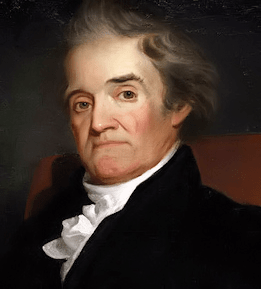Textus Receptus Bibles
Noah Webster's Bible 1833
| 16:1 | And the LORD said to Samuel, How long wilt thou mourn for Saul, seeing I have rejected him from reigning over Israel? fill thy horn with oil, and go, I will send thee to Jesse the Beth-lehemite: for I have provided me a king among his sons. |
| 16:2 | And Samuel said, How can I go? if Saul shall hear it, he will kill me. And the LORD said, Take a heifer with thee, and say, I have come to sacrifice to the LORD. |
| 16:3 | And call Jesse to the sacrifice, and I will show thee what thou shalt do: and thou shalt anoint to me him whom I name to thee. |
| 16:4 | And Samuel did that which the LORD spoke, and came to Beth-lehem. And the elders of the town trembled at his coming, and said, Comest thou peaceably? |
| 16:5 | And he said, Peaceably: I have come to sacrifice to the LORD: sanctify yourselves, and come with me to the sacrifice. And he sanctified Jesse and his sons, and called them to the sacrifice. |
| 16:6 | And it came to pass when they had come, that he looked on Eliab, and said, Surely the LORD'S anointed is before him. |
| 16:7 | But the LORD said to Samuel, Look not on his countenance, or on the hight of his stature; because I have refused him: for the LORD seeth not as man seeth; for man looketh on the outward appearance, but the LORD looketh on the heart. |
| 16:8 | Then Jesse called Abinadab, and made him pass before Samuel. And he said, Neither hath the LORD chosen this. |
| 16:9 | Then Jesse made Shammah to pass by. And he said, Neither hath the LORD chosen this. |
| 16:10 | Again, Jesse made seven of his sons to pass before Samuel. And Samuel said to Jesse, The LORD hath not chosen these. |
| 16:11 | And Samuel said to Jesse, Are here all thy children? And he said, There remaineth yet the youngest, and behold, he keepeth the sheep. And Samuel said to Jesse, Send and bring him: for we will not sit down till he hath come hither. |
| 16:12 | And he sent, and brought him in. Now he was ruddy, and also of a beautiful countenance, and a good appearance. And the LORD said, Arise, anoint him: for this is he. |
| 16:13 | Then Samuel took the horn of oil, and anointed him in the midst of his brethren: and the Spirit of the LORD came upon David from that day forward. So Samuel arose, and went to Ramah. |
| 16:14 | But the Spirit of the LORD departed from Saul, and an evil spirit from the LORD troubled him. |
| 16:15 | And Saul's servants said to him, Behold now, an evil spirit from God troubleth thee. |
| 16:16 | Let our lord now command thy servants, who are before thee, to seek a man who is a skillful player on a harp: and it shall come to pass, when the evil spirit from God is upon thee, that he will play with his hand, and thou wilt be well. |
| 16:17 | And Saul said to his servants, Provide me now a man that can play well, and bring him to me. |
| 16:18 | Then answered one of the servants, and said, Behold, I have seen a son of Jesse the Beth-lehemite, that is skillful in playing, and a mighty valiant man, and a man of war, and prudent in matters, and a comely person, and the LORD is with him. |
| 16:19 | Wherefore Saul sent messengers to Jesse, and said, Send to me David thy son, who is with the sheep. |
| 16:20 | And Jesse took an ass laden with bread, and a bottle of wine, and a kid, and sent them by David his son to Saul. |
| 16:21 | And David came to Saul, and stood before him: and he loved him greatly; and he became his armor-bearer. |
| 16:22 | And Saul sent to Jesse, saying, Let David, I pray thee, stand before me; for he hath found favor in my sight. |
| 16:23 | And it came to pass, when the evil spirit from God was upon Saul, that David took a harp, and played with his hand: so Saul was refreshed, and was well, and the evil spirit departed from him. |

Noah Webster's Bible 1833
While Noah Webster, just a few years after producing his famous Dictionary of the English Language, produced his own modern translation of the English Bible in 1833; the public remained too loyal to the King James Version for Webster’s version to have much impact.